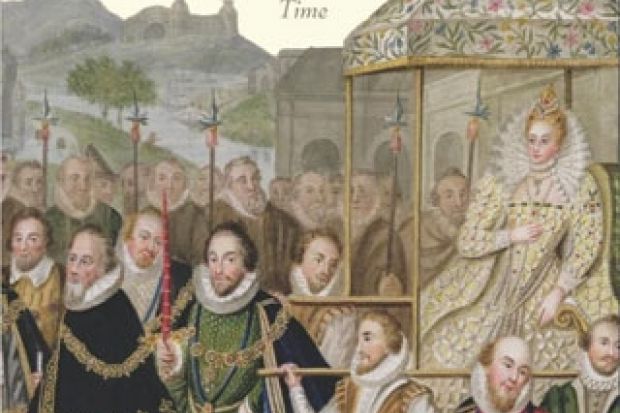Garry Wills’ study of the theatricality of power in Elizabethan England explores love as courtly performance. He focuses on the “self-dramatizing trait” in Renaissance drama, “the most grandiose self-presenters” being those who wield authority. Citing Elizabeth I’s 1586 speech – “Princes, you know, stand upon stages so that their actions are viewed and beheld of all men” – he invokes another historian, Christopher Haigh, for whom “her power was an illusion – and illusion was her power”. If this sounds like the tagline of a Hollywood movie, it is: Elizabeth meets Shakespeare in Love. Wills observes: “It might seem perilous for the queen to make love the keynote of her reign, since it could be considered ‘womanly’, drawing attention to the problems of having a female ruler. Love, after all, is a rather ethereal thing on which to build a political structure.”
It is also a rather ethereal thing on which to build a history, but Making Make-Believe Real is really a settling of accounts with feminists, New Historicists and post-colonialists in whose hands Shakespeare’s Petruchio becomes a vile misogynist, Henry V a manipulative war criminal, Prospero a slavemaster-torturer. Railing against this latter-day School of Night and its “John the Baptist” Stephen Greenblatt, Wills rides to the rescue of his beloved bard and his queen.
Wills defends “Henry V, the most idealized of the English kings” from the “truth squad” of “Hal Haters” and “Falstaff Inflators” out to get Harry. They see Richard II as a play that “proves their favourite concept, taken from Michel Foucault, that Shakespeare’s plays are all ‘subversive’”, but for Wills Elizabeth is not Richard, she is Henry: “She wooed and won a people as Henry woos and wins Kate. They both made make-believe monarchy believable.”
Displaying bardolatry that would make Stanley Wells blush and hagiography that would make royal correspondent Nicholas Witchell twitch, Wills offers the Hello! version of history, all gloss and gossip. Of Elizabeth we learn that by 46, “her days of seeming realistically desirable were moving to an end”, yet the language of courtship “never tired her”: “By the end of her reign…Elizabeth was like a fading diva, whose act some thought had gone on too long”, ruling over “England, the little realm on the periphery of the great powers”, a “parsimonious queen” who “tamped down” fighting talk “for the sake of her budget and her nation”. Yet £5 million was blown on wars during her reign while people starved. That’s parsimony for you. It is Wills’ plucky little England with its royal “procrastinator” that is make-believe.
Shakespeare’s career inconveniently extends beyond Elizabeth and England, straddling two reigns, two states. This archipelagic angle is awkward for Wills, who alludes to James I’s mother as “Mary Tudor”. Of James’ son, Henry, Wills remarks, “the whole national intelligentsia was engaged in the development and future of the Prince of Wales”. “What ish my Nation?”, as Shakespeare’s Irish captain asks in Henry V. Henry was the Welsh-titled son of a Scottish king who, Wills says, “was made King of England”. Apparently “Elizabeth presided with grace over an effervescent tumult of creativity, and she did it for almost half a century. She preserved her country.” Did she? Then why did a Scottish king, son of the cousin she executed, succeed her? Other oddities include the word “Burghardtian” appearing out of the blue without a reference to tie it to. One assumes an allusion to Jacob Burckhardt, though there is no other mention.
This is a big, bold and brassy monograph by a prestigious press. Its author admires opulence. The phrase “gorgeously costumed” occurs twice within a paragraph. This book is gorgeously costumed, but in the end I felt it was only make-believe.
Making Make-Believe Real: Politics as Theater in Shakespeare’s Time
By Garry Wills
Yale University Press, 384pp, £17.99
ISBN 9780300197532
Published 28 August 2014
Register to continue
Why register?
- Registration is free and only takes a moment
- Once registered, you can read 3 articles a month
- Sign up for our newsletter
Subscribe
Or subscribe for unlimited access to:
- Unlimited access to news, views, insights & reviews
- Digital editions
- Digital access to THE’s university and college rankings analysis
Already registered or a current subscriber?





